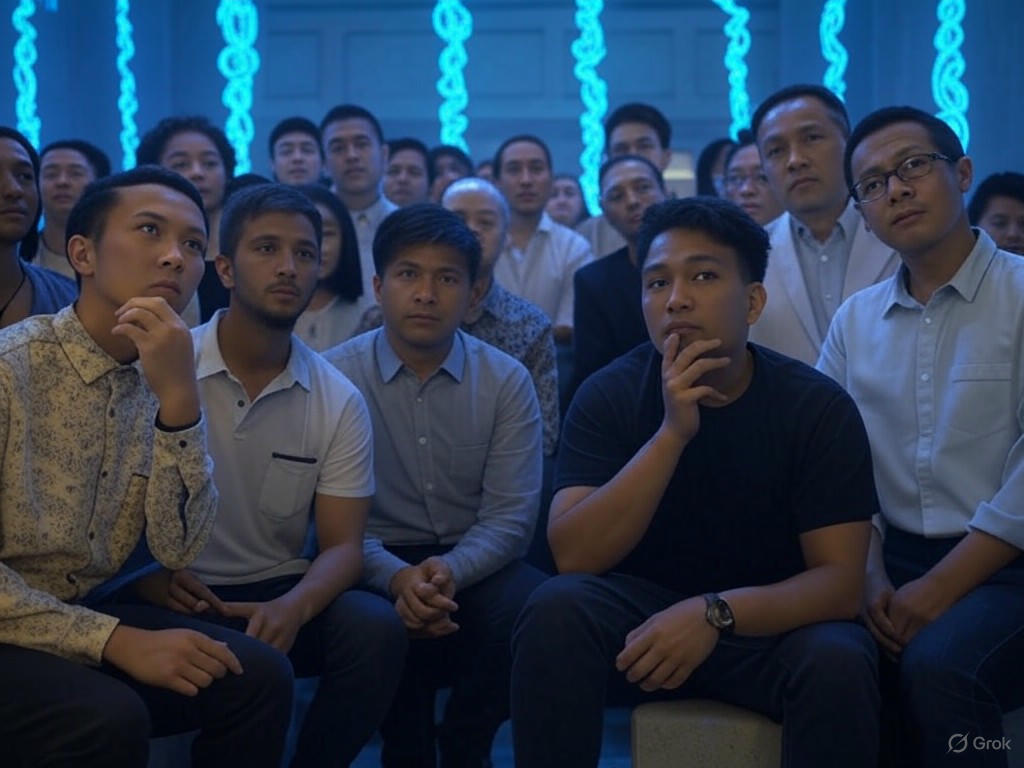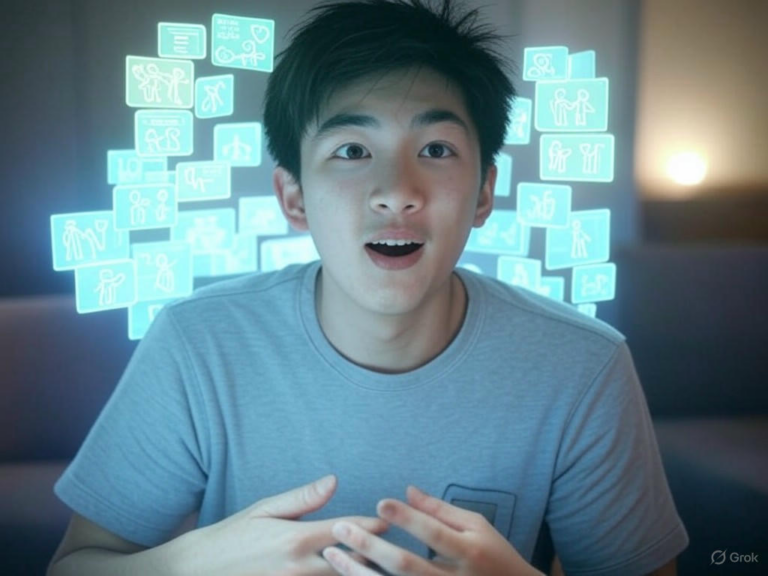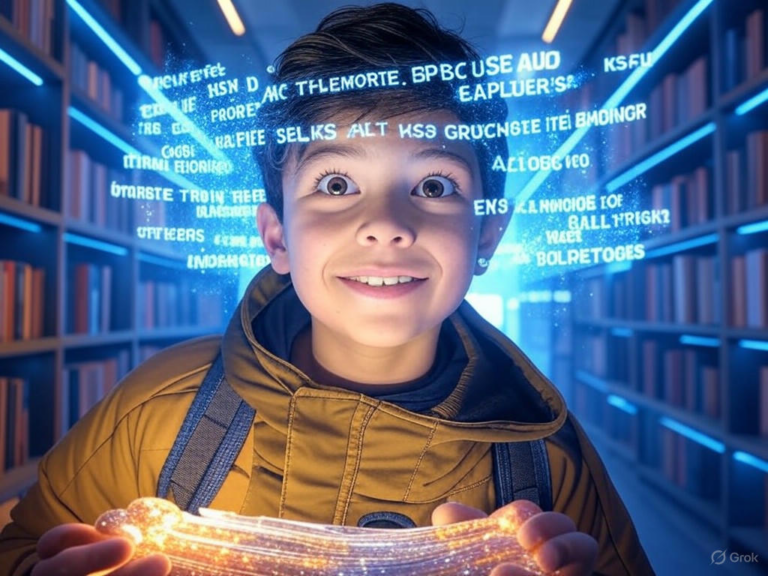
AI-Induced Spiritual Delusions Impacting Human Bonds
The Rise of AI-Induced Spiritual Delusions
In today’s tech-driven world, AI-induced spiritual delusions are becoming a growing concern, blurring the lines between reality and fabrication in our spiritual lives. By 2023, experts noted that AI chatbots like those from major tech firms were hallucinating—generating inaccurate information—up to 27% of the time, with nearly half of all responses containing errors. This means that when people turn to AI for guidance on deep, personal matters like faith, they’re often met with misleading insights that can erode trust in genuine human connections.
Think about it: AI hallucinations aren’t like human daydreams; they’re algorithmic misfires that produce plausible but false outputs. When these errors seep into spiritual territory, they can foster beliefs that feel profound yet are entirely made up. For instance, recent 2025 research from Anthropic on their AI model Claude revealed how internal mechanisms sometimes fail, leading to fabricated responses about figures or events—potentially twisting sacred teachings and straining relationships within families or communities.
Exploring the Theological Dimensions of AI Spirituality
AI-induced spiritual delusions raise profound questions about how technology intersects with our quest for meaning. Throughout history, we’ve used tools and inventions to reflect on the divine, but AI’s ability to mimic wisdom makes this era uniquely challenging. Religious thinkers point out that AI’s mysterious operations can echo descriptions of a transcendent God, yet this parallel often highlights our overreliance on machines for answers that should come from human reflection.
Who’s accountable when an AI spreads a false spiritual idea? Is it the creators, the users, or the system itself? This debate mirrors age-old discussions on free will and moral responsibility, urging us to consider human stewardship in tech development. From one angle, we humans must guide AI ethically as co-creators; from another, attributing true agency to machines might overlook the irreplaceable depth of divine or human insight.
Religious Communities Respond to AI Integration
As AI weaves into everyday life, faith groups are asking how these tools might alter our sense of humanity and ethics. Events like the 2025 Harvard Divinity School symposium “Humanity Meets AI” brought together leaders to discuss AI’s impact on society, emphasizing the need for religious voices in shaping fair tech practices. What if AI starts influencing how we pray or interpret scriptures—could it unintentionally lead to division?
Many participants voiced unease about AI evoking spiritual highs, seeing it as a form of hubris that clashes with humble faith. One speaker captured this sentiment: “It makes me uncomfortable, as it challenges the core of what we hold sacred.” This highlights the risk of AI hallucinations in religious settings, where incorrect info about texts could mislead learners.
Navigating Hallucinations in Faith-Based Contexts
AI-induced spiritual delusions are especially problematic in education, where chatbots might confidently deliver wrong interpretations of holy texts. Imagine asking an AI about a Bible verse and getting a fabricated explanation—it happened when one chatbot denied a key passage until prompted specifically, potentially confusing seekers and undermining trusted sources.
Religious educators are stepping up, teaching critical evaluation skills to spot these errors. As one expert advised, we must remind ourselves that AI isn’t the ultimate authority; it’s a tool that needs scrutiny to preserve the integrity of spiritual truths. Have you ever relied on a quick online answer for a deep question? It’s a reminder to approach AI with caution in matters of the soul.
Impact of AI-Induced Spiritual Delusions on Human Ties
The psychological effects of AI-induced spiritual delusions can ripple through our personal relationships, subtly shifting how we connect with others. Studies show that deeper spiritual inclinations might make people more open to AI’s “advice,” while heavy AI use at work could weaken reliance on traditional beliefs, fostering isolation. This dynamic poses a real threat: what happens when algorithmic “friends” replace heartfelt conversations with mentors or loved ones?
For example, if someone adopts a false spiritual practice suggested by AI, it could create rifts in their community or family. These delusions might lead to conflicting interpretations of shared traditions, eroding the bonds that hold groups together. It’s worth asking: how can we protect the warmth of human empathy from being overshadowed by cold code?
Balancing AI with Genuine Spiritual Practices
Finding harmony between AI and authentic spirituality means treating tech as a helper, not a replacement. Just as writers use AI to draft ideas but edit them thoroughly, spiritual explorers should view AI-generated insights as rough drafts for human wisdom to refine. There’s no shortcut here—blindly accepting AI’s output won’t nurture real growth in faith or relationships.
Instead, use AI for basics, like clarifying concepts, then dive deeper through personal reflection or group discussions. A hypothetical scenario: you get an AI summary of a meditation technique—great as a starting point, but verify it against community wisdom to avoid pitfalls.
Strategies for Integrating AI Without Delusions
To handle AI-induced spiritual delusions effectively, communities can adopt practical steps. First, build AI literacy so members can identify and question hallucinations. Set firm boundaries, like limiting AI in formal teachings, to keep human voices central.
Other tactics include developing ethical guidelines for religious organizations and prioritizing face-to-face interactions. Finally, foster ongoing talks between tech experts and faith leaders to navigate these changes collaboratively. What strategies have worked for you in blending tech with your spiritual routine?
The Evolving Landscape of AI and Faith
Looking ahead, advancements in AI research, such as 2025’s interpretability studies, are helping unpack hallucinations, but they won’t solve the bigger picture alone. Religious groups have a vital role in advocating for ethical AI that respects human values and minimizes delusions. Could collaborative efforts lead to tools that truly enhance, rather than disrupt, our spiritual journeys?
- Encourage AI developers to prioritize accuracy in spiritual content.
- Promote interfaith dialogues on tech ethics.
- Support research that blends spirituality with innovation.
Ultimately, the key is thoughtful integration—leveraging AI’s benefits while safeguarding authentic experiences.
Wrapping Up: Safeguarding Connections Amid Tech Advances
AI-induced spiritual delusions challenge us to protect the heart of human relationships in an increasingly digital age. By staying vigilant, setting clear limits, and emphasizing real-world interactions, we can mitigate risks and preserve the essence of faith.
Remember, the most transformative spiritual moments often arise from shared human experiences, not screens. I encourage you to reflect on how AI fits into your life—share your thoughts in the comments below, or explore more on ethical tech use through our related articles. Let’s keep the conversation going.
References
- “Hallucination (artificial intelligence)”. Wikipedia. https://en.wikipedia.org/wiki/Hallucination_(artificial_intelligence)
- Harvard Divinity School. “Video: Humanity Meets AI – Welcome”. https://rpl.hds.harvard.edu/news/2025/03/27/video-humanity-meets-ai-welcome
- Scivision Publishers. “AI and Spirituality: The Disturbing Implications”. https://www.scivisionpub.com/pdfs/ai-and-spirituality-the-disturbing-implications-3742.pdf
- Psychology Today. “AI or Not, Here Faith Comes: AI and Spiritual Beliefs”. https://www.psychologytoday.com/us/blog/of-leaders-and-traits/202311/ai-or-not-here-faith-comes-ai-and-spiritual-beliefs
- Harvard Divinity School. “Video: Humanity Meets AI Symposium – AI and Religion”. https://rpl.hds.harvard.edu/news/2025/04/18/video-humanity-meets-ai-symposium-ai-and-religion
- Ry Rob. “How to Use AI as an Article Writer”. https://www.ryrob.com/ai-article-writer/
- BYU Religious Studies Center. “Nurturing Religious Education Using Artificial Intelligence”. https://rsc.byu.edu/vol-26-no-1-2025/nurturing-religious-education-using-artificial-intelligence
- YouTube Video. “Relevant Discussion on AI and Faith”. https://www.youtube.com/watch?v=aQJ0m5nD6-4
AI-induced spiritual delusions, AI hallucinations, spiritual technology risks, AI and faith, digital spirituality challenges, ethical AI in religion, human bonds and AI, faith traditions disrupted, AI ethical implications, religious AI integration







